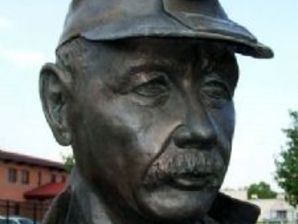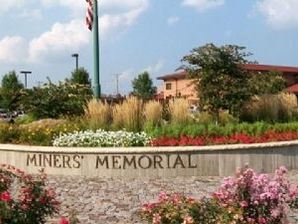The Weir - Pittsburg Coalfield
With the discovery of coal in Cherokee and Crawford Counties in the late 1860's, thousands came to work the mines. Some came from American towns and cities but most were immigrants from Europe. Over fifty nationalities settled in this area. Many landed at Ellis Island and continued here by railroad before heading out to the coal camps. Some came to find work. Some to escape repression. Some to find a new life in America. All were seekers.
What they found was not the "paradise on Earth" described in the broadsides distributed throughout Europe but a difficult and dangerous existence living in camps and digging coal on their hands and knees ten to twelve hours a day. Many were killed. Many more were maimed or died later of Black Lung Disease. Because coal was dug only part of the year, numerous miners established businesses and farms to provide for their families when mines were idle.
The Weir-Pittsburg Coalfield would eventually be home to more than one hundred coal camps. At one time, this region produced a third of the nation's bituminous coal and smelted lead and zinc ore in such quantities that southeast Kansas became an industrial giant. The mix of nationalities in these camps created an ethnic geography unique to Kansas that came to be known as "The Little Balkans." The miners not only dug coal but gave voice and leadership to the United Mine Workers in its efforts to establish the eight-hour work day, guarantee safe working conditions, secure equal pay for equal work, create child labor laws, and implement minority and women's rights.
This memorial is dedicated to the men and women who not only toiled to extract coal from the Earth and create a new homeland but also engaged in a courageous struggle for social reforms that advanced the cause of human and civil rights in America. A diverse populace of uncommon strength, ingenuity and heart, their presence lives on in their descendants and in the businesses, farms and towns they established throughout southeast Kansas.
——————
[Bottom of Mining Camps of the
Weir-Pittsburg Coal Field]
With the closing of mines,
many camp disappeared
while some became cities,
towns, villages and hamlets.
——————
[Honor Roll of Miners on several panels]















